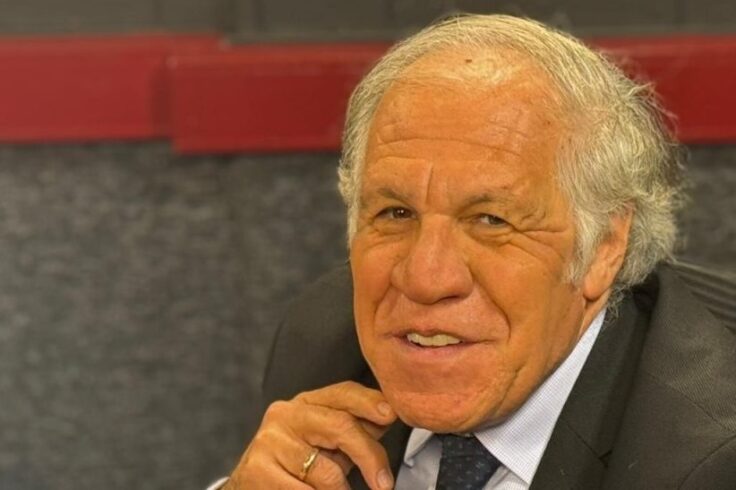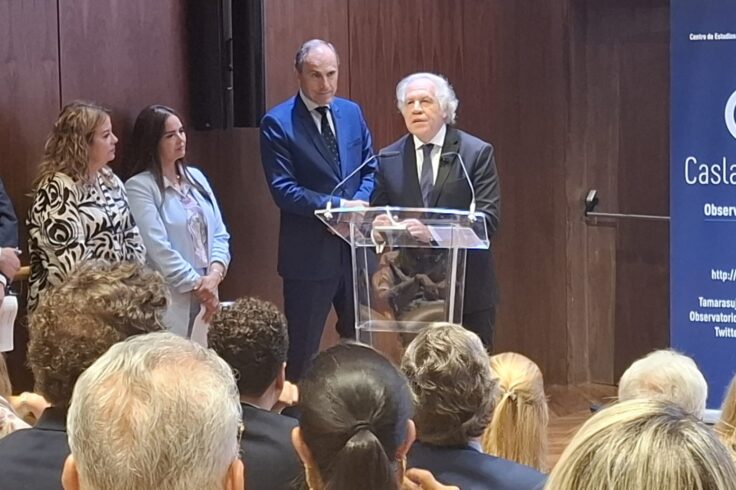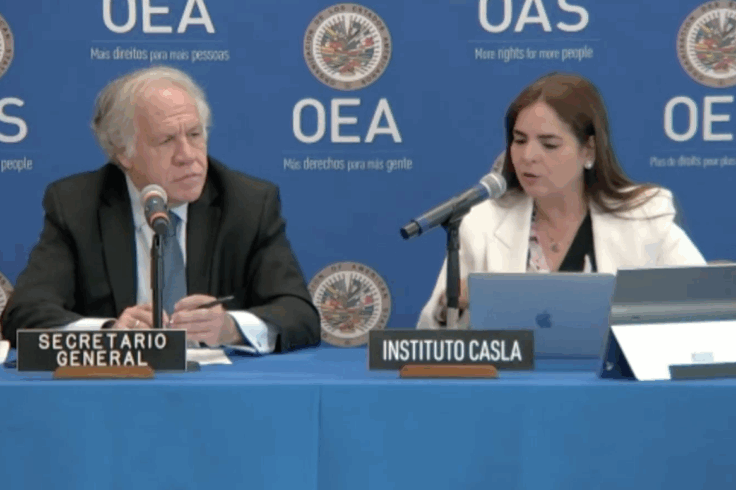Meet the Team
The experiences of political transformation in Eastern Europe three decades ago have inspired the democratic forces in Latin America that are preparing for change.
Fredo Arias-King

Fredo ARIAS-KING
President of the Board of Directors
ARIAS-KING is an entrepreneur, political transitions expert, philanthropist, and writer. He played a crucial role in Mexico’s shift to democracy in 2000 as a senior advisor to the PAN campaign that ended seven decades of one-party rule. ARIAS-KING is also President of T&R Chemicals, Inc., director of Ejido Verde, a mass-reforestation project in Mexico, and publisher of the Pine Chemicals Review. He founded the academic quarterly “Demokratizatsiya: The Journal of Post-Soviet Democratization” in 1992. At Harvard, he was involved in the Strengthening Democratic Institutions Project and the Russian Investment Symposia (1994-98). He has advised democratic forces in Moldova, Russia, Peru, Cuba, Venezuela, Belarus, and Ukraine. In Moldova, he received the “Inima de Aur” (Golden Heart) award from the democratic opposition in 2004 and helped establish the International Committee for Democracy in Cuba.

Tamara SUJÚ ROA
Executive Director & CEO
SUJÚ is a Venezuelan criminal lawyer and human rights activist. She is currently the Executive Director of the CASLA Institute, which promotes human rights and provides legal support to political prisoners in Latin-American countries. She is the author of the largest archive of torture, sexual violence and arbitrary detention cases in Venezuela. In recent years SUJÚ has collected first-hand testimonials from more than 400 victims of violations carried out by the Venezuelan government, concluding that such acts were not sporadic but rather systematic and widespread. In August 2014, SUJÚ requested and obtained political asylum in the Czech Republic because she was afraid “for her freedom and physical integrity” after receiving multiple threats from the Venezuelan government due to her work.

Ivan PILIP
Director of International Relations
Ivan PILIP is an economist and former politician who served in the government of the Czech Republic under president Václav Havel. He was Finance Minister from June 1997 to July 1998, after having been the Minister of Education, Youth and Sport from 1994 to 1997. Before the Velvet Revolution at the end of 1989, PILIP was not involved in politics and joined the Christian Democratic Party after it was founded in 1990. In 2001 he was detained in Cuba for almost a month after meeting opponents of the Cuban regime, before being released after international pressure on Cuba. In June 2004 he was appointed as Vice-Presidents of the European Investment Bank in Luxembourg, the first from any of the states that joined the European Union in 2004. PILIP served a 3-year term until the summer of 2007.

Carlos GONZÁLEZ SHÁNĚL
Director, Center for Cybersecurity Studies
Carlos GONZALEZ SHÁNĚL is a Chilean-Czech journalist, founder of CASLA Institute. He has been the Eastern European correspondent of various international media, including the Mexico’s biggest television broadcaster Televisa, Radio Netherlands and the international service of the Czech Radio. He is a general expert in human rights, security and authoritarian regimes. GONZALEZ SHÁNĚL has covered military conflicts in Ukraine, Georgia and shot documentaries in repressive countries like Cuba. He also has extensive experience in the non profit sector, having cooperated with top European organizations like ‘People in Need‘, Forum 2000 and the Lech Walesa Institute.

Freddy VALVERDE
Founding Member
Freddy VALVERDE is a Costa Rican journalist based in Prague, specialized in Central and Eastern Europe and Human Rights issues. Currently is the editor in chief of the Spanish Service of Radio Prague. Previously he was the Prague correspondent of the VoA, El Mercurio and El Mundo. Among other topics, he was responsible for the media coverage of the fall of the Iron Curtain and the defeat of communism in Central Europe. VALVERDE has extensive experience in the field of human right and diplomacy. He was member of the Government Committee for the Defense of Human Rights in the Czech Republic and cooperated with the Czech Non Governmental Organization ‘People in Need’. During the earliest nineteen’s VALVERDE was also diplomat at the Costa Rican Embassy in Prague.



